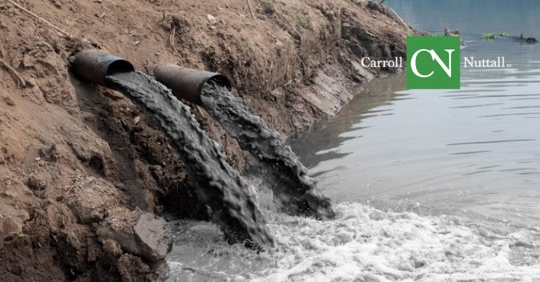Between 1953 and 1987, approximately one million military service members, civilian workers, and their families lived at Camp Lejeune in Jacksonville, North Carolina, unaware their water supply was dangerously contaminated. The U.S. government's intentional dumping of oil, petrol, industrial wastewater, toxic chemicals, and leaking fuel tanks on the base polluted the drinking and bathing water.
What Happened: How Water at Camp Lejeune Became Contaminated
Fuel tanks on the base leaked, further polluting the drinking water supply. Additionally, chemicals and industrial solvents from nearby facilities seeped into the Marine Corps Base. Despite being flagged as a major polluter by the Environmental Protection Agency in the 1970s, the irresponsible dumping of toxins continued for several years, even after an order to cease in 1974. Government officials not only covered up the illegal chemical dumping but also resisted attempts to uncover the truth.
The Health Impact: Cancer and Other Serious Illnesses
Experts have determined that the drinking water at Camp Lejeune was among the most highly contaminated in U.S. history. The U.S. Department of Health and Human Services' Agency for Toxic Substances and Disease Registry (ATSDR) conducted an assessment, revealing that certain chemicals in the tainted water were present at levels high enough to increase the risks of cancer and other serious illnesses, including those affecting young children and unborn babies. Many exposed to contaminated water at Camp Lejeune have suffered from various types of cancer and severe health conditions.
The Toxic Culprits: Volatile Organic Compounds
The water contamination at Camp Lejeune involved several toxic substances, including volatile organic compounds (VOCs) such as benzene, tetrachloroethylene, trichloroethylene, and vinyl chloride. Many VOCs are known carcinogens, exposure to which can lead to serious health implications.
Illnesses Linked to the Camp Lejeune Water Contamination
The water contamination at Camp Lejeune has been linked to various serious illnesses. Pursuing a Camp Lejeune injury lawsuit may help offset medical costs and lost wages associated with these conditions. This includes adult leukemia, aplastic anemia and other myelodysplastic syndromes, bladder cancer, breast cancer, esophageal cancer, kidney cancer, liver cancer, female infertility, miscarriage, hepatic steatosis, leukemia, multiple myeloma, scleroderma, renal toxicity, non-Hodgkin’s lymphoma, and Parkinson’s disease.
The Camp Lejeune Justice Act of 2022: A Ray of Hope
The Camp Lejeune Justice Act of 2022 allows certain individuals to sue and recover damages for harm from exposure to contaminated water at Camp Lejeune in North Carolina between August 1, 1953, and December 31, 1987. Individuals who were exposed to contaminated water at Camp Lejeune during that period and suffered harm as a result, including veterans, civilians, and families, can take legal action. This includes those who were exposed to contaminated water while in the womb.
Carroll & Nuttall is Dedicated to Helping Victims Fight for Justice
If you or a loved one has been impacted by one of the illnesses mentioned here and suffered exposure to contaminated water at Camp Lejeune for at least 30 days between 1953 and 1987, you may be entitled to compensation. Our experienced attorneys at Carroll & Nuttall are available to discuss your legal options and guide you on the best course of action moving forward.
Call (703) 952-5801 to schedule a consultation with our legal team.

